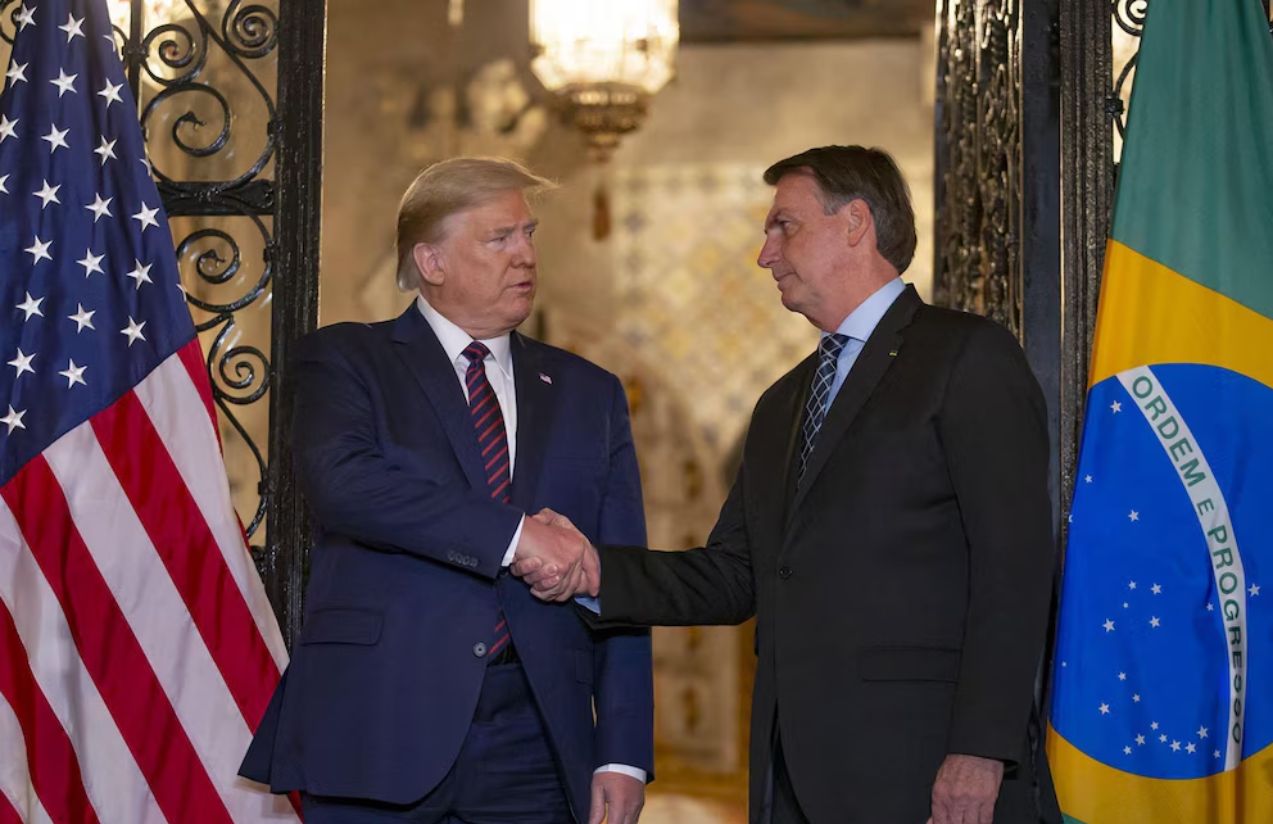Brazil’s Supreme Court imposed new precautionary measures on former President Jair Bolsonaro this Friday, as he faces trial for an alleged coup attempt. The restrictions include mandatory use of an electronic ankle monitor, a ban on accessing his social media accounts, and orders to stay away from embassies and refrain from communicating with diplomats or other individuals under investigation in the case, according to local media reports.
The announcement followed new operations by the Federal Police, including searches at Bolsonaro’s home in Brasília and at the headquarters of the Liberal Party (PL), which he leads. Bolsonaro is accused of spearheading a plot to overturn the results of the 2022 election, which he lost to Luiz Inácio Lula da Silva.
The Attorney General’s Office has charged him with five crimes, including attempting a coup and violently seeking to dismantle the democratic rule of law—offenses that could carry a combined prison sentence of up to 40 years.
The case has triggered an international controversy following the intervention of U.S. President Donald Trump, who publicly expressed support for Bolsonaro. In posts on his social media platform Truth Social and in a letter to the former Brazilian president, Trump denounced the legal proceedings as a “witch hunt” and called for the trial to be immediately halted. “I have seen the terrible treatment he’s receiving at the hands of an unfair system. This trial must end now!” Trump declared.
Adding fuel to the fire, Trump announced a 50% tariff increase on Brazilian imports, a move he attributed to political reasons—including his dissatisfaction with Bolsonaro’s prosecution and what he described as “secret and illegal” orders from Brazil’s Supreme Court to block social media accounts accused of spreading misinformation.
The Brazilian government, under President Lula, responded strongly. Officials labeled Trump’s comments as “unacceptable blackmail” and demanded respect for the independence of the country’s judiciary. Lula reiterated Brazil’s willingness to continue trade negotiations but made clear that it would not bow to external pressure.
The diplomatic crisis remains unresolved, with both governments exchanging letters and public statements. In his most recent message, Trump renewed his concern over what he sees as attacks on freedom of speech in both Brazil and the United States, and urged Lula to “stop attacking his political opponents.”
For now, the confrontation between the two countries is playing out in an exchange of letters, but the political and trade tensions continue to escalate.

